Momentum Matters
LET’S MAKE SURE PHILADELPHIA’S PROGRESS IN REDUCING GUN VIOLENCE LASTS
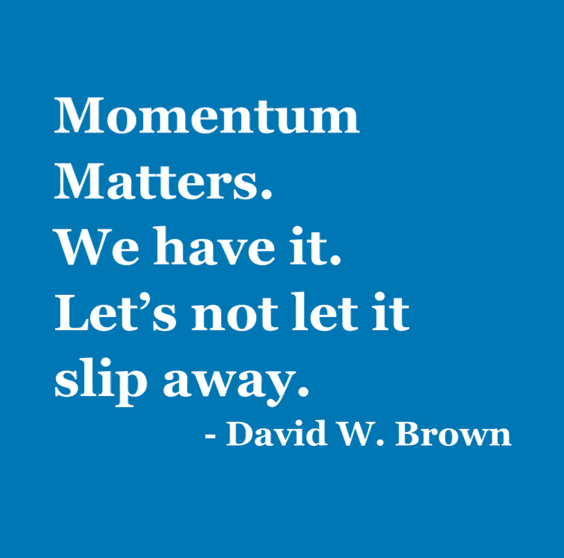
Philadelphia is proving that progress is possible. Our city has seen a historic decline in gun violence—more than 40% fewer homicides since 2021—thanks to the tireless work of community partners, city leaders, and intervention programs that save lives every day.
But as I wrote in last week’s Philadelphia Inquirer, we cannot take this momentum for granted. Sustaining these gains requires steady investment, continued collaboration, and a commitment to prevention and intervention strategies that work.
I invite you to read my op-ed here and join us in ensuring Philadelphia keeps moving forward.
– David W. Brown
Executive Director, Civic Coalition to Save Lives
Philadelphia’s Progress Shows What’s Possible
In a recent New York Times opinion piece, violence researcher David Kennedy pointed to Philadelphia as an example of a city making real gains in reducing homicides. Those gains, experts say, are happening for the right reasons.
“Philadelphia is one of many cities in the U.S. that’s had a large reduction in violence over the last few years,” said Ben Struhl, executive director of Penn’s Crime & Justice Policy Lab. “That reduction is remarkable in its own terms.”
Struhl credits the City of Philadelphia and its partners for doing the difficult, necessary work of understanding and addressing the dynamics that actually drive shootings. “Most shootings aren’t about drugs,” he explained. “They’re about disputes and retaliation.” What makes Philadelphia’s recent progress stand out, he said, is that city leaders have stopped treating violence as random or inevitable and started focusing directly on the people and cycles fueling it.
That shift matters because cycles of retaliation cut across neighborhoods and undermine entire systems. Many perpetrators are adults, so school-based interventions alone won’t reach them — yet their actions harm schools by creating unsafe environments and lowering learning outcomes for children. “We underestimate how deeply violence spreads when we fail to confront it directly,” Struhl said.
Linking Efforts, Not Competing
One of Struhl’s concerns is that Philadelphia’s anti-violence work can still be fragmented. Programs sometimes operate in isolation, even competing for attention. “This is not a competition, it’s a team sport, and we’re all on the same side,” he said. While city leaders are beginning to align these efforts, the challenge is to replace what has looked like a “basket of programs” with a more unified strategy.

The Role of Civic Leaders
Outside government, Struhl said discipline and focus are essential.
“People need to have a very specific idea of what it takes to reduce violence,” he said. “They need to have a coherent framework of things we know are successful, and they need to stick to that framework rather than chasing the next silver bullet.”
Building for the Long Term
The next step is to institutionalize what works so effective practices survive changes in leadership and become the city’s standard operating procedure.
“Only when it becomes standard operating procedure can we make lasting change,” Struhl said.
Government, he explained, often faces incentives to spread programs too thinly. But Struhl sees encouraging signs that Philadelphia is breaking that pattern. “A lot of people in Philadelphia government are being thoughtful about how government can focus its resources to deal with acute problems,” he said. “That is a real reason for optimism.”
By concentrating on the most pressing problems in specific neighborhoods, he added, the City can generate ripple effects that strengthen surrounding communities and free up resources to tackle the next challenge.
Centering Community:
Civic Coalition to Save Lives Intervention Partners Featured at the Launch of A Thousand Ways to Die
At his Philadelphia book launch at the Free Library of Philadelphia, journalist Trymaine Lee highlighted three Civic Coalition to Save Lives partners, underscoring the power of local solutions to gun violence.
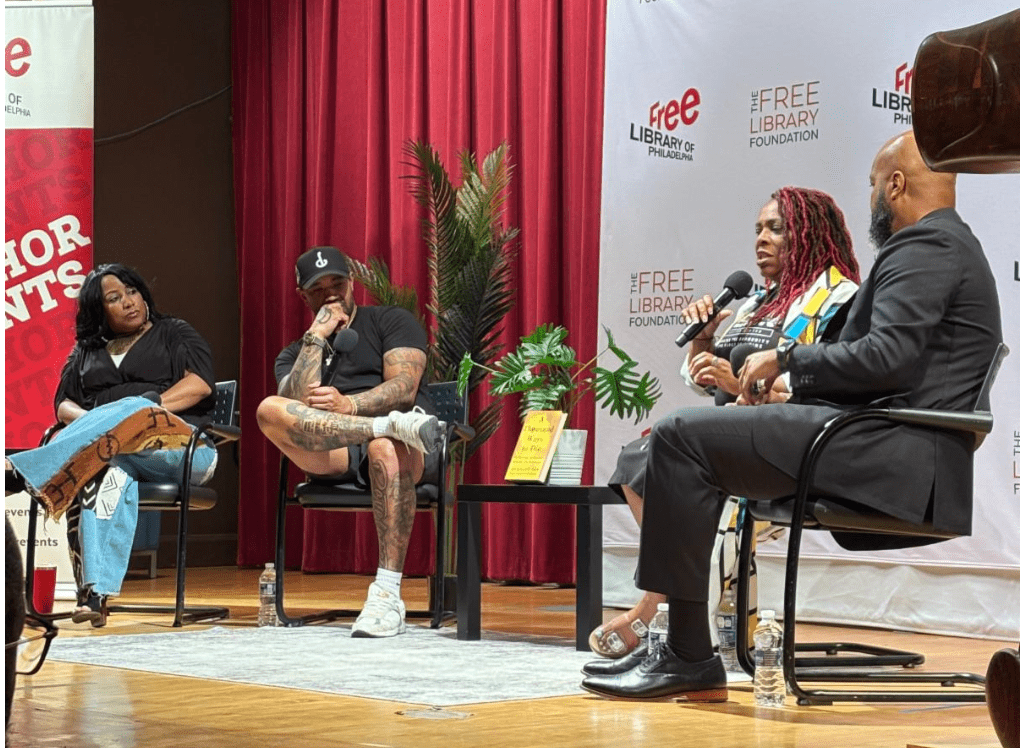
When Pulitzer Prize–winning journalist Trymaine Lee brought his new book A Thousand Ways to Die home to Philadelphia, he made a deliberate choice: to begin the evening not with his own words, but with the voices of Philadelphians working every day on solutions to gun violence.
That decision reflected both Lee’s journalism and his roots. Raised in Philadelphia, Lee spoke movingly about his own close brush with gun violence as a teenager, a moment that could have changed the course of his life. His return to the city was as much about community as about his book: “I wanted to make sure the community was involved,” he told the audience, “because so often journalists take without giving back.”
The community leaders he invited to open the program are Civic Coalition to Save Lives partner organizations representing three vital approaches to intervention:
- Chantay Love, co-founder of EMIR Healing Center (Every Murder Is Real), provides trauma-responsive care for families and neighborhoods.
- Pastor Carl Day, founder of Culture Changing Christians and the Beat the Block program, mentors and supports young men through a paid four-month cohort focused on transformation, entrepreneurship, and brotherhood.
- Tasnim Sulaiman, founder of Black Men Heal, offers free, culturally matched therapy for Black men, along with group programs that address reentry and the psychological toll of violence.
Together, they spoke about the true costs of gun violence, including grief that reverberates through families, neighborhoods living in hyper-vigilance and trauma passed from one generation to the next.
“We can’t walk away when the pain is still running their lives,” said Chantay Love. “Consistency and commitment are the only way forward.”
Pastor Carl Day emphasized how reaching just a few young men can shift the safety of an entire block. “It might be five people driving fear in a whole ZIP code. Reach them, and everyone can breathe. We take men society has given up on, invest in them, and show them that their purpose can become profit.”
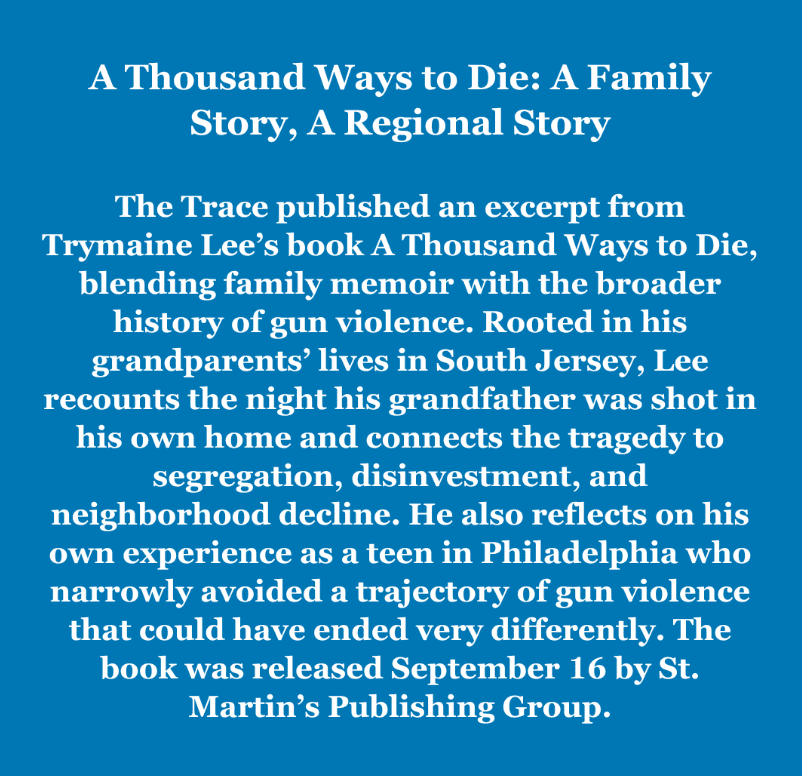
For Tasnim Sulaiman, the overlooked dimension is mental health. “We treat the physical wounds but not the psychological ones,” she said. “Trauma becomes the norm, and people operate from survival mode. Therapy and emotional support help reduce impulsive violence — but funders need to understand this is slow, steady work, not a quick return.”
Tension around sustained funding for intervention programs ran through part of the conversation. The panelists noted that financial support often prioritizes scalability over sustainability, even though intervention-based strategies, largely the most effective work, require patient, relationship-based investment: one person, one family, one block at a time.
The Civic Coalition to Save Lives is proud to amplify the voices of Philadelphia’s intervention partners driving change in the city.
The Trace Live: Safer Together – November 18
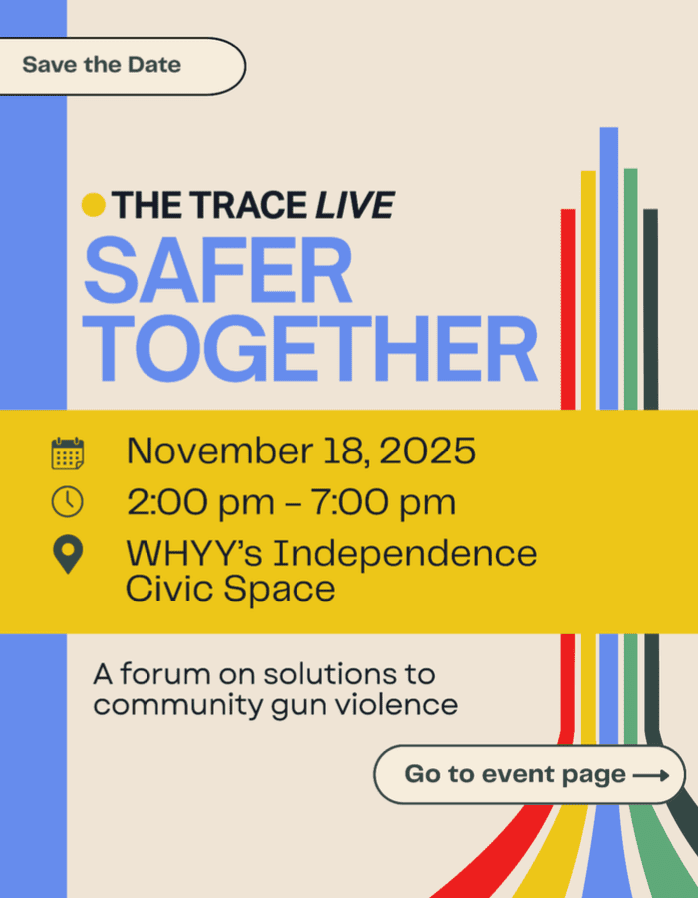
This November, The Trace will host Safer Together, a special forum on gun violence solutions at WHYY’s Independence Civic Space.
The event will bring together national experts, local leaders, and community partners to spotlight what’s working to reduce shootings and to share strategies for lasting change.
With Philadelphia continuing to see progress but still facing real challenges, this conversation is an opportunity to learn, connect, and strengthen efforts that save lives.
The Trace is a nonprofit news organization dedicated to reporting on gun violence in America, with a focus on its causes, impact, and solutions. Tickets for the Safer Together Forum will go on sale on October 9.
Local Strategies Save Lives; Mayors Urge Federal Support to Sustain Progress
A new survey released by the U.S. Conference of Mayors highlights both progress and pressing needs in the fight against violent crime. Of the 60 major cities that responded to the survey, 86% reported declines in violent crime this year, showing that local strategies – funded largely by local resources – are making a difference.
At the same time, mayors stressed that the federal government must step up its support. The survey found that just 3% of city police budgets come from federal sources, and nearly a third of cities saw federal grants cut this year. Programs proven to reduce juvenile crime – mentoring, violence intervention, sports, and youth programs – are underfunded in 70% of surveyed cities.

Mayors also underscored the importance of federal- local partnerships. Nearly all reported strong collaboration with the FBI, DEA, and ATF, which has helped them identify and apprehend suspects and collect critical evidence. Still, they are calling on Washington for more resources: increased funding for crime prevention, support for mental health services, investment in advanced technologies, and sustained backing for intervention and prevention programs.
As Oklahoma City Mayor and U.S. Conference of Mayors President David Holt noted, “A major reason for our recent success has been local commitment to programming that does the work of intervention and prevention. The federal government can be a partner in supporting those programs, especially those that work with young people.”
For Philadelphia, these findings reinforce what we know: intervention, prevention, and trust-building save lives. Sustaining progress requires continued investment – not cuts – in community-based programs.
ICYMI
Each month, we feature news stories from Philadelphia and beyond that highlight the power of intervention—showcasing programs, research, and community efforts working to prevent violence, support those at highest risk, and build safer neighborhoods through proven, people- centered strategies.
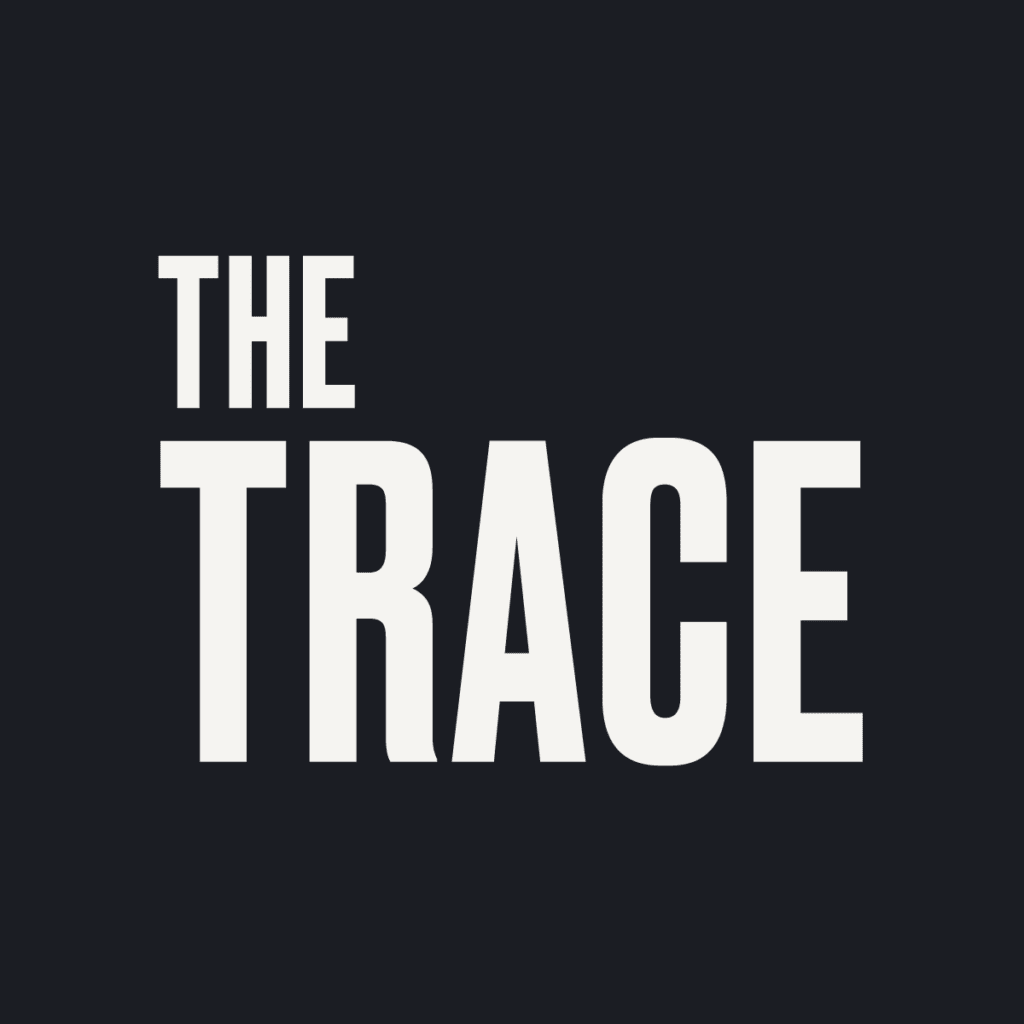
Philadelphia’s Shootings Have Plummeted, But Some Neighborhoods Remain Hard Hit
By Mensah M. Dean | September 30, 2025
Veteran gun violence reporter Mensah Dean, writing in The Trace, echoes the Civic Coalition’s message that progress requires persistence. Philadelphia shootings dropped from more than 2,200 in 2023 to just over 1,100 in 2024, the lowest in a decade, yet the neighborhoods hardest hit ten years ago remain the most impacted. With 16,000 shootings and nearly 4,000 deaths since 2015, the crisis remains far from over.

Council expands ‘Ban the Box’ criminal record hiring law
By Jack Tomczuk | September 25, 2025
The City Council has unanimously passed updates to ‘Ban the Box,’ Philadelphia’s Fair Chance Hiring law, to further limit how employers can disqualify job applicants based on past convictions. Prior justice involvement is one of the top risk factors for gun violence, and fair-chance hiring expands employment opportunities that reduce those risks, a crucial aspect of evidence-based intervention efforts. Key changes include reducing the look-back window for misdemeanors from seven years to four, eliminating consideration of summary offenses altogether, and requiring employers to allow applicants to prove that convictions have been expunged. The legislation also adds due-process protections for applicants and includes anti-retaliation safeguards.
Father’s Day Rally Committee Launches Peace Mobile for On-the-Ground Healing
The Father’s Day Rally Committee, a key intervention group in Philadelphia’s gun violence reduction efforts, unveiled the Peace Mobile, a brightly colored RV designed to bring free mental health and trauma support directly to neighborhoods most impacted by violence. Backed by $100,000 in state funding and staffed with trained therapists in partnership with local nonprofits, the initiative aims to remove barriers like cost and transportation.

Philadelphia launches ‘Healing Through Peace’ mobile to address gun violence trauma

Philly anti-violence group Father’s Day Rally Committee unveils ‘Peace Mobile’

Philly nonprofit launches “Peace Mobile” to help fight gun violence

“Peace Mobile” Hitting Philadelphia Streets This Fall To Help Prevent Gun Violence

By Malcolm Burnley | September 22, 2025
In a recap of the event, The Citizen shared the full event video and an excerpt from the book.

Pennsylvania’s Office of Gun Violence Prevention Marks First Year
By Ian Thompson, FOX43 Harrisburg | September 9, 2025
One year after its relaunch, Pennsylvania’s Office of Gun Violence Prevention convened its first statewide advisory group in Harrisburg. The milestone comes amid a 23% drop in statewide homicides in 2024—outpacing the national decline—with Philadelphia seeing a 36% decrease last year and another 22% decline so far in 2025. Guided by listening sessions and community input, the office has released an initial strategic plan and directed over $85 million in grants to local prevention efforts. The OGVP Executive Committee Membership includes Pastor Carl Day of Beat the Block and Deion Sumpter, Deputy Director of Violence Prevention Initiatives, Office of Safe Neighborhoods, City of Philadelphia.

Office of Gun Violence Prevention Marks One Year of Progress
Press Release | September 9, 2025
One year after Governor Shapiro re-established the Pennsylvania Office of Gun Violence Prevention (OGVP), the Shapiro-Davis Administration convened the office’s first Advisory Group meeting to highlight statewide progress. Under PCCD’s leadership, Pennsylvania saw a 23% decline in homicides in 2024—outpacing the national drop—along with reductions in firearm assaults and robberies. The office has engaged more than 800 stakeholders, released a strategic plan, and directed $85 million in Violence Intervention and Prevention (VIP) grants to more than 130 projects. Lt. Gov. Austin Davis emphasized that the work is about “turning research and stakeholder input into real strategies that will save lives.”

The staggeringly high cost the United States pays for easy access to guns
By Trymaine Lee, The Trace | September 7, 2025
The cost of a single gunshot injury is estimated to be $1 million. Multiply that by the approximately 100,000 people shot in the U.S. in any given year.
In an excerpt from A Thousand Ways to Die, Pulitzer Prize–winning journalist Trymaine Lee tells the story of Kevin Johnson, a Philadelphia teen paralyzed in a shooting over a basketball jersey. His experience shows both the immeasurable personal loss for families and the staggering financial burden of gun violence, which economists estimate costs the U.S. more than $500 billion each year.

The Trace Was Nominated for Three Journalism Awards
By Team Trace | September 2, 2025
The Trace, a nonprofit newsroom dedicated to in-depth reporting on gun violence in America, has been nominated for three national journalism awards. Two of the honored projects are rooted in Philadelphia: a powerful photo essay capturing a mother’s loss and in-depth reporting on the impact of the Supreme Court’s Bruen decision. Together with its series on gun violence in Black America, the nominations underscore how Philadelphia stories are shaping the national conversation on gun violence.